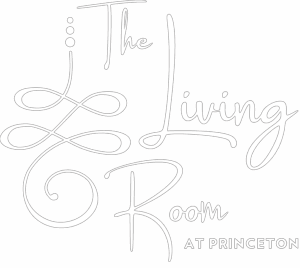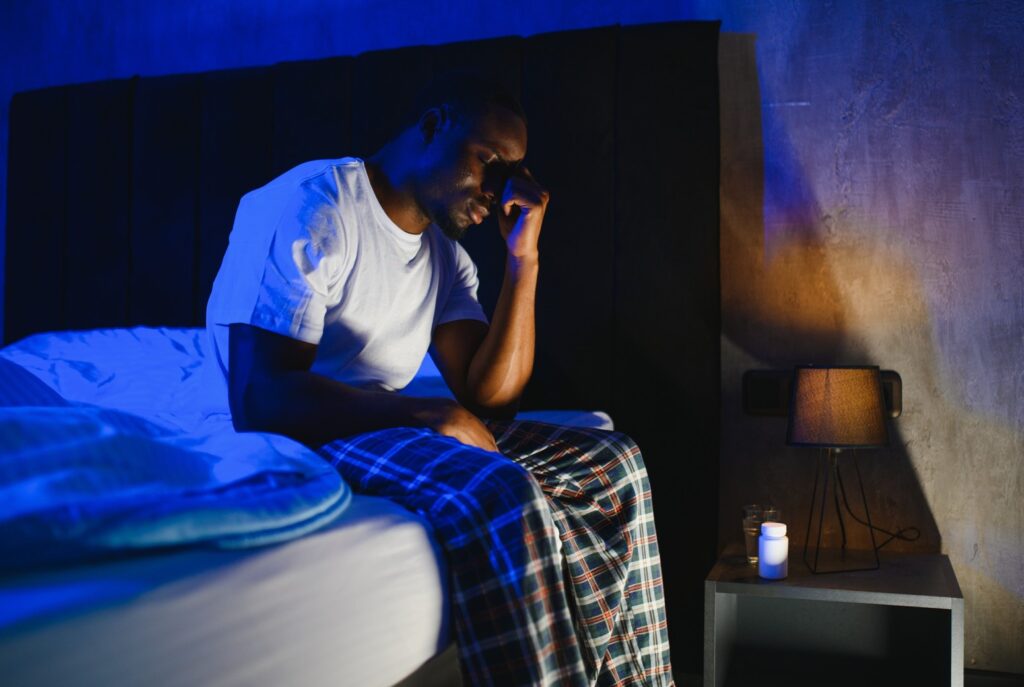Most of us have faced those quiet hours when rest refuses to come—when the mind spins despite our best efforts to wind down. For many, insomnia is more than a passing phase. It’s a persistent challenge that can chip away at health, clarity, and emotional well-being.
At The Living Room, we believe that true rest begins with understanding. In a world eager for quick fixes, issues like sleep aid addiction or dependence are more common than they should be. We invite a slower, steadier approach—one that starts with self-awareness and unfolds toward healing.
A Growing Struggle: Sleeplessness in Modern Life
Across the country, sleep disorders are on the rise. Millions wrestle with disrupted sleep, and many turn to prescription medications like Ambien (zolpidem) and Lunesta (eszopiclone) for relief. These drugs work—but their effectiveness can come at a cost, especially when used regularly.
Ambien and Lunesta are classified as controlled substances. That means they carry real risks, including dependency and addiction, and are carefully regulated. For those with a history of addiction—or even those with none—they may do more harm than good over time.
Common side effects include:
- Changes in mood or behavior
- Memory issues
- Unusual nighttime eating or activity
- Physical dependence and withdrawal
Dependency Begins Quietly
The journey from helpful sleep aid to necessary crutch is often subtle. At first, medications may be used infrequently. But when they become nightly companions, the body may begin to depend on them.
There’s a crucial difference between addiction and dependence, and understanding that difference can empower healthier choices.
- Addiction is psychological—it’s about craving, compulsion, and continued use despite consequences. People addicted to prescription sleep medications might use higher doses, run out early, or take the medication to alter their mood rather than to sleep.
- Dependence, on the other hand, is physical. After regular use, the brain adapts to the drug’s presence. When the medication is stopped abruptly, sleep may disappear entirely, and withdrawal symptoms like anxiety and restlessness may surface.
Neither state means a person is broken. But both signal that the body and mind are out of balance—and that support may be needed to restore it.
A Gentle Path to Recovery
Healing from sleep aid dependency doesn’t require abrupt action. It calls for steady, thoughtful steps. At The Living Room, our recovery programs are built on care, not judgment—offering individualized pathways through detox, therapy, and sustainable sleep health.
Treatment options include:
- Medically guided detox through our partner programs.
- Partial hospitalization programs (PHP)
- Intensive outpatient treatment (IOP)
- Ongoing therapy and wellness support
Whether you’ve used sleep aids for months or years, healing is possible. It starts with acknowledging the difficulty—and allowing yourself compassion in the face of it.
Asking the Right Questions
Instead of asking “What can I take to fall asleep?”, ask “What’s keeping me awake?”
This shift in thinking is powerful. It opens space for inquiry, reflection, and deeper healing. Insomnia rarely comes without reason. And while medications can cover the symptoms, they often leave the root causes untouched.
Some underlying causes of insomnia include:
- Unaddressed mental health challenges (like anxiety or depression)
- Stress from work, school, or relationships
- Chronic pain conditions
- Overuse of stimulants like caffeine or nicotine
- Disrupted sleep routines and screen use before bed
- Hormonal changes and age-related shifts
- Medical issues like sleep apnea or restless leg syndrome
Rest Without Prescription: Reclaiming Your Nights
There are proven, non-narcotic ways to support healthy sleep. These don’t just treat insomnia—they help us understand and respond to it with care.
Supportive strategies include:
- Guided meditation, breathwork, or body scans
- Gentle movement like yoga or evening walks
- Sleep journaling to identify patterns and triggers
- Responsible use of natural supplements (melatonin, magnesium, valerian root)
- Creating a calming pre-bed routine and consistent sleep schedule
At The Living Room, we encourage a quieter path—one that honors the body’s signals and supports healing from the inside out. In many cases, sleeplessness is an invitation to listen more deeply, to acknowledge unresolved tension, and to begin rebuilding trust in your body’s rhythms.
Sleep That Heals
You deserve sleep that’s peaceful—not forced. You deserve nights that restore, not just interrupt. And you deserve healing that goes beyond any pill bottle.
If you or someone you care about is navigating dependency on prescription sleep medication, The Living Room is here to help. Our programs combine evidence-based care with compassion, meeting each person exactly where they are.
Contact us when you’re ready. We’ll meet you as you are—and walk beside you, one mindful step at a time. Let’s talk about what The Living Room can do for you or the one you love.

